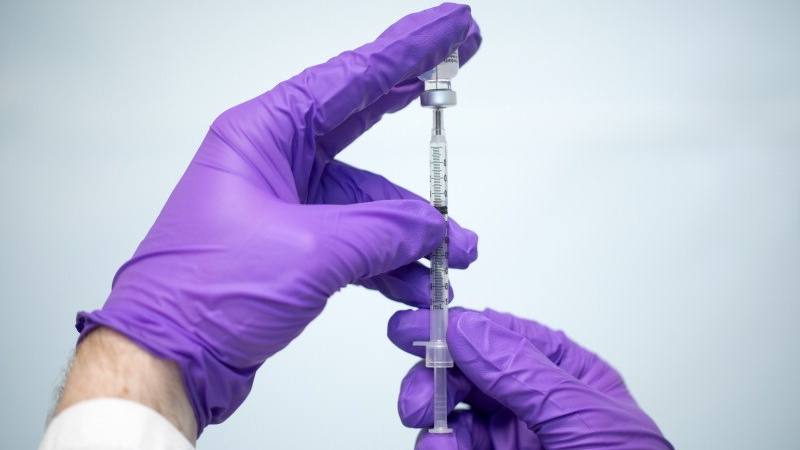-
COVID-19
Mayo Clinic expert answers questions about the new COVID-19 vaccine

Ahead of the fall respiratory virus season, the Food and Drug Administration has approved two updated COVID-19 vaccines. The new messenger RNA, or mRNA, vaccines from Moderna and Pfizer/BioNTech are formulated to better target variants that are currently circulating and will replace outdated vaccines.
Watch: Mayo Clinic expert answers questions about the new COVID-19 vaccine
Journalists: Broadcast-quality soundbites are available in the downloads at the end of the post. Please courtesy: Mayo Clinic News Network Name super/CG: Priya Sampathkumar, M.D./Infectious Diseases/Mayo Clinic.
"The new vaccine that was just approved by the FDA is essentially a COVID vaccine targeting a different strain of the COVID virus than was in the original vaccine or in the bivalent vaccines that came out last year. It's still a COVID vaccine, but it's now targeting the XBB.1.5 strain, which has been the omicron-type virus that's been circulating throughout the U.S. and most parts of the world since the beginning of this year," says Dr. Priya Sampathkumar, a Mayo Clinic infectious diseases expert.
Is it considered a booster?
"It's not exactly a booster. I would liken it to the updated influenza vaccine that comes out each year. The influenza vaccine is updated each year as the strains that they protect against change year from year," says Dr. Sampathkumar.
Who should receive the 2023-2024 COVID-19 vaccine?
The Centers for Disease Control and Prevention panel of vaccine experts voted to recommend the new 2023-2024 COVID-19 vaccine to all Americans 6 months of age and older.
"The COVID vaccine definitely should be taken by those at highest risk of complications from COVID, and that includes older people, people with weakened immune systems, very young children. These are the people that we are seeing have significant complications from COVID," says Dr. Sampathkumar.
Health experts also are urging people to get vaccinated for influenza. Experts say it is safe to get both the COVID-19 and flu vaccines at the same time. Both vaccines have been shown to prevent the most serious complications of COVID-19 and the flu, which include hospitalization and death.
"The (flu) vaccine is recommended for everyone who is 6 months and older, and the groups that benefit the most from the vaccine, again, are the same kind of people who benefit from the COVID vaccine — older individuals, people who have underlying immune deficiencies, people with underlying heart, lung, liver kidney disease — because they don't tolerate influenza as well as others," says Dr. Sampathkumar.
Mayo Clinic will offer influenza and 2023-2024 COVID-19 vaccines once they are available. You may find getting the new 2023-2024 COVID-19 vaccine at another location more convenient since some pharmacies may already have supplies. You can text your ZIP code to "438829" or call 800-232-0233 to find a vaccination location near you.







